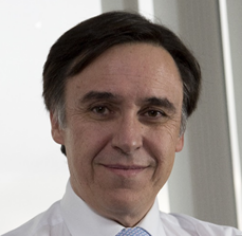Moving towards operational excellence
Member Story
Vol 30 No 2 2020
16 November 2020
Interview with Eduardo Lasso de la Vega, General Manager at CNAT.
 How do you describe your role in global nuclear performance and safety?
How do you describe your role in global nuclear performance and safety?
My role is to ensure that CNAT fulfils its mission, which is to produce electrical energy in a safe, reliable, economic, environmentally friendly manner, and to guarantee long-term production through the optimal operation of the Almaraz and Trillo nuclear power plants.
My role is focused on maintaining a solid organisation and robust processes that support the mission, providing the strategic alignment of the management team around this mission, and leading the definition of action plans and challenging the organisation towards operational excellence.
In my case, and given the situation of CNAT in last years, the management committee dedicated a lot of time to the strategic alignment and the structure of the organisation. We have been dedicating an important part of our time focusing the organisation towards the WANO model of excellence, and as top priorities: personal safety culture, leadership, risk management and the use of operational experience.
Finally, I believe that my position demands an additional responsibility as a member of WANO towards the improvement of the safety and reliability of the world fleet, and it is a role that I find more and more demanding every year, trying to be an active member in the success of WANO.
What techniques do you use to inspire and connect with people in your organisation?
I try to be as close as possible to our plants and our professionals and be in both plants nearly every week. When at the plant, most of time I visit the control room and establish a dialogue with the staff on duty. I attend leadership training courses, alone or accompanied by another director. I try to encourage the attitude of the attendees to improve our performance together as a team.
More than 60 managers of our organisation have participated in some international activity in 2019, among which those developed by WANO were the main source of participation. I pay special attention to the training and promotion of new managers. For instance, in the last five years we have taken over almost 40 percent of the managers and directors at CNAT, and I have a personal interview with all the university graduates who join our company.
At CNAT, the presence of the members of the management committee in the plants is perceived as something normal, and not as an extraordinary event or a reaction to a difficult situation. The principle that corporate services exist to support - and also challenge - the plants is something that must be perceived by the organisation through its continuous presence in the day-to-day running of the plant.
What traits do you look for in leaders of your organisation?
Today, every time I receive a new worker who joins CNAT, I insist that, for me, our great difference with the great professionals of other industries is not that we know more or master more complex technology, but because of our immense responsibility, which demands more from us than it would do anywhere else. It demands the best from us.
This requires a number of particular features, beyond a solid technical knowledge of their area of responsibility. These are a commitment to safety, in all its areas, nuclear, personal, as a basic priority in our activity. Constructive criticism and self-criticism, eagerness to improve and search for excellence.
What advice do you have for current and future leaders in nuclear organisations around the globe?
The nuclear industry is an attractive environment for a professional, which means working in a high technology sector, with rigorous, procedural work processes, and with a contribution of great relevance to society by producing clean energy.
However, it is at the same time, a very demanding activity that requires a high level of commitment, a high level of professionalism and the need for a constant interest in improvement. Leaders in the nuclear industry have and have had through the years a unique responsibility. They must perform their work to the highest standards of safety and performance, while anticipating, preventing and, if necessary, responding to low-probability, high consequence events.